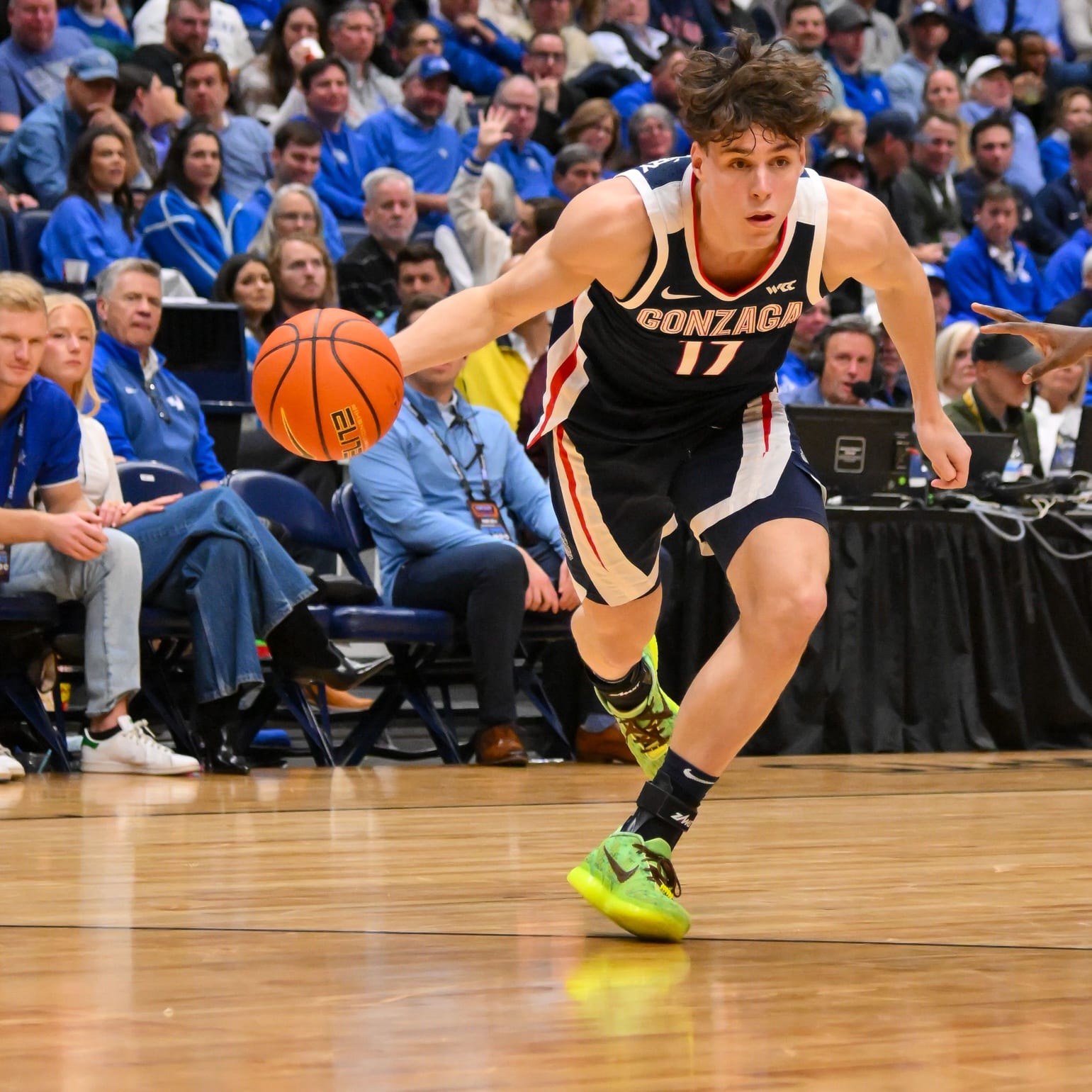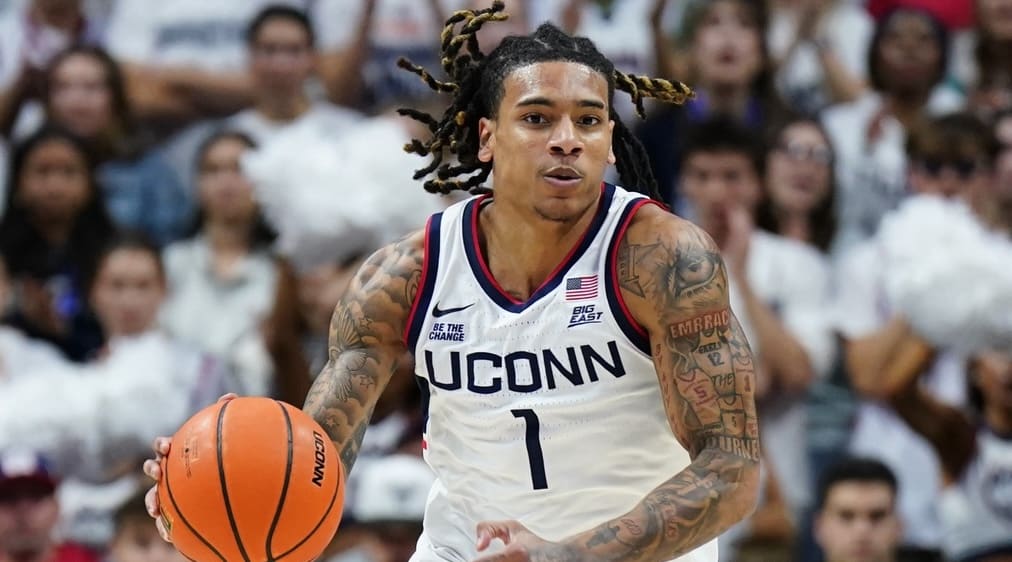LOUISVILLE vs. MICHIGAN
Most Important Matchup: It's almost too simple to say that the biggest players will have the largest impact on the NCAA championship. Usually, pundits say the NCAA Tournament requires teams to have excellent guards, and both the Cardinals and Wolverines do. However, it has been the improvement in their bigs that has resulted in this particular pairing. Michigan certainly wouldn't be playing in the last game of the season without freshman Mitch McGary. The 6-foot-10 freshman had moments of potential in the regular season, but he has become a force in the Big Dance. Through five games, he has averaged 16.0 points and 11.6 rebounds. It will be Gorgui Dieng's job to slow the big freshman. The 6-10 junior will have to do what Kansas' Jeff Withey could not. Dieng has shown great improvement in his third season as a Cardinal. The Cardinals center has been hampered by foul trouble in the last two games and did not score against Wichita State on Saturday. He will need to stay on the court to slow McGary and force the Wolverines to be the perimeter-based team they were most of the season.
Louisville Cardinals
Strength: Just as Syracuse succeeded this season based on its troublesome 2-3 zone, the Cardinals have been successful because of their defense. The team's athleticism makes the full-court press a problem for opposing offenses and creates easy baskets for the somewhat inconsistent offense. In some ways, Michigan was better set up to beat the zone
LOUISVILLE vs. MICHIGAN
Most Important Matchup: It's almost too simple to say that the biggest players will have the largest impact on the NCAA championship. Usually, pundits say the NCAA Tournament requires teams to have excellent guards, and both the Cardinals and Wolverines do. However, it has been the improvement in their bigs that has resulted in this particular pairing. Michigan certainly wouldn't be playing in the last game of the season without freshman Mitch McGary. The 6-foot-10 freshman had moments of potential in the regular season, but he has become a force in the Big Dance. Through five games, he has averaged 16.0 points and 11.6 rebounds. It will be Gorgui Dieng's job to slow the big freshman. The 6-10 junior will have to do what Kansas' Jeff Withey could not. Dieng has shown great improvement in his third season as a Cardinal. The Cardinals center has been hampered by foul trouble in the last two games and did not score against Wichita State on Saturday. He will need to stay on the court to slow McGary and force the Wolverines to be the perimeter-based team they were most of the season.
Louisville Cardinals
Strength: Just as Syracuse succeeded this season based on its troublesome 2-3 zone, the Cardinals have been successful because of their defense. The team's athleticism makes the full-court press a problem for opposing offenses and creates easy baskets for the somewhat inconsistent offense. In some ways, Michigan was better set up to beat the zone with all of its perimeter options as well as McGary than it is to handle the press. However, the Cardinals' press will be focused on Wolverines guard Trey Burke, who will have to use all of his ball handling tricks and court vision to help set up the Michigan offense. Louisville is pretty good with halfcourt defense, as well. Dieng is an excellent shot blocker and the Cardinals guards, Russ Smith and Peyton Siva, will try to slow Burke like the Orange did.
Weakness: If the first half against the Shockers showed anything, it was that Louisville's offense can get bogged down when the defense is not creating turnovers. Smith is the only Cardinal who can create his own offense, and he can play out of control at times. The 6-1 junior has been at his best in the NCAA Tournament and has averaged an even 25.0 points. He has taken at least 10 free throws in his last four games, but uncharacteristically went 5-of-12 (including missing his first four freebies) from the line against Wichita State. The Wolverines defense will be focused on slowing Smith, so other offensive options will have to step up.
Intangibles: Unless the championship game serves up a truly indelible moment, this tournament may be defined by Kevin Ware's horrific injury. While CBS did the right thing by not showing it more than twice, it is near impossible to "unsee." Unfortunate as it is, the upside is the Cardinals have a cause to rally around. Additionally, Pitino beat Michigan coach John Beilein twice in three meetings from 2005-2007 when Beilein was coach at West Virginia, though Pitino needed overtime for both wins.
Louisville Will Win If: it can keep McGary off the offensive glass, and better yet get him in foul trouble. The Wolverines do not have many other interior options beyond the 6-10 freshman. If Louisville gets him out of the game, it can control the paint with Dieng, Montrezl Harrell and Chane Behanan. The more turnovers the Cardinals force, the better off they will be. Halfcourt offense is not the Cardinals' style, so a faster pace will also benefit the Cardinals.
Michigan Wolverines
Strength: It may seem like I am overstating the importance of McGary, but he has provided the type of offensive balance that the Wolverines sometimes lacked in the regular season. The team knew it had a potent weapon in National Player of the Year Trey Burke, but a guard - even a scoring guard as good as Burke - can do just so much. For example, the win over Syracuse on Saturday featured Burke scoring just seven points, only the second time this season the sophomore has been held to single digits. Fortunately for the Wolverines, the progeny of NBA players - Tim Hardaway Jr. and Glenn Robinson III - stepped up to score a combined 23 points.
Weakness: The Cardinals have a large edge in experience. While the relative youth of the Wolverines can be an advantage in that the sophomore and freshmen-led team doesn't bow to pressure. On the other hand, Louisville was in the Final Four last year with largely the same time, while the Wolverines were upset by Ohio in the Round of 64. Will the lack of meaningful upperclassmen finally catch up with Michigan? Or, by this time in the season, are most teams similarly experienced?
Intangibles: To answer that question, you could look at the meat grinder of a schedule that the Wolverines have been through in 2012-13. The Big Ten was the toughest conference, and Michigan took its lumps with a sweep at the hands of Indiana, two losses to Wisconsin and road losses to Ohio State, Michigan State and, ahem, Penn State. The good news is that these games - in addition to non-conference games against tournament teams such as Pittsburgh, Kansas State and North Carolina State - forged a stronger team that belies the teams lack of upperclassmen.
Michigan Will Win If: McGary and Burke combine to score 30 points. The two stars of the team need to be at their best to knock off the top seed in the tournament. Another seven-point game from Burke will not get it done against the Cardinals. Burke's 3-point percentage has fallen to 37.8 percent because of his 8-of-31 (25.8 percent) from long range during the tournament. He did hit the most significant shot with tying 3-pointer against Kansas, but he will need to be dialed in against the Cardinals. McGary will need to clean up the perimeter messes. If Burke has a showcase game, the Wolverines could establish a nice lead and hope that they can manage the Cardinals' pressure.
Prediction
When Beilein was in the Big East with the Mountaineers, all three of his games against Louisville were extremely close. This 2013 version of the game should be close as well. In the end, it will come down to which star guard can lead his team to victory. While Russ Smith has been consistently excellent in the NCAA Tournament, there is a reason why Burke is the National Player of the Year. He will bounce back from his poor shooting game against Syracuse and lead Michigan to the national championship.










































